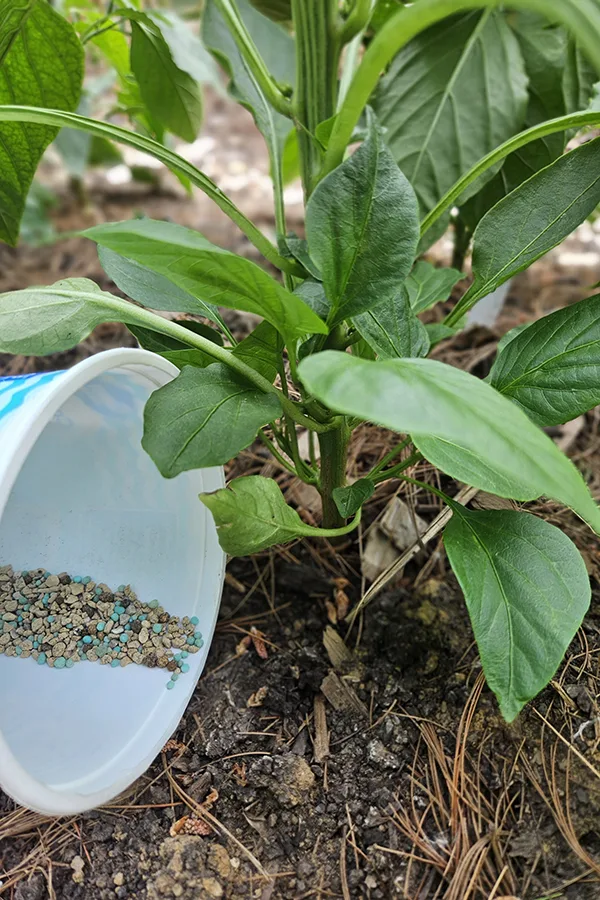Best Fertilizers for Peppers: Enhance Development and Taste with Our Leading Picks
Organic Vs. Synthetic Fertilizers: Which Is Best for Supporting Healthy And Balanced Pepper Plants?
In the realm of supporting healthy and balanced pepper plants, the selection in between natural and artificial fertilizers stands as a pivotal decision with far-reaching ramifications. While both choices goal to give important nutrients to support plant development, the subtleties of their influence on the soil, plant health, and the environment spark a debate that mirrors throughout the gardening community. Understanding the distinct benefits and possible challenges of each plant food kind is vital for pepper cultivators seeking to maximize their yields while maintaining an eco-conscious and sustainable technique.
Advantages of Organic Fertilizers
Organic plant foods provide a sustainable and environmentally-friendly strategy to beneficial pepper plants, offering important nutrients without using artificial chemicals. These natural plant foods are derived from natural sources such as garden compost, manure, bone meal, and algae, promoting dirt health and wellness and biodiversity. Unlike synthetic plant foods, organic choices release nutrients gradually, ensuring a constant and balanced supply for pepper plants to thrive.
One considerable benefit of natural plant foods is their capability to improve dirt structure and water retention. By boosting soil health, natural fertilizers promote valuable microbial activity, which aids in nutrient uptake by pepper plants. Furthermore, organic plant foods minimize the danger of chemical run-off, protecting water resources from air pollution and guarding the setting.
Additionally, organic fertilizers add to long-lasting soil fertility by advertising the growth of valuable soil microorganisms. These organisms aid damage down raw material, launching nutrients in a form that is conveniently accessible to pepper plants. best fertilizers for peppers. By cultivating a healthy dirt environment, organic plant foods sustain sustainable pepper farming practices that profit both plants and the environment
Disadvantages of Synthetic Plant Foods
Synthetic fertilizers, in contrast to their natural counterparts, present numerous downsides when used to nourish pepper plants, influencing both plant health and ecological sustainability. One significant drawback of synthetic plant foods is their propensity to leach nutrients from the soil rapidly. This fast leaching can cause nutrient discrepancies in the soil, triggering plants to experience poisonings or shortages. Additionally, synthetic plant foods can damage advantageous soil organisms, such as earthworms and advantageous germs, interfering with the dirt ecosystem's balance.
In addition, the overuse of synthetic plant foods can add to water pollution. Excess fertilizers not soaked up by plants can get rid of right into water bodies, causing eutrophication, where algae blossoms diminish oxygen levels in the water, hurting water life. Additionally, synthetic plant foods are commonly originated from non-renewable sources, such as fossil fuels, contributing to carbon emissions and environmental destruction throughout their production.
Nutrient Absorption Comparison
When comparing synthetic and natural fertilizers in terms of nutrient absorption, natural fertilizers have the benefit of supplying a much more balanced and slow-release resource of nutrients. Organic plant foods you can check here include a variety of macro and trace elements that are not only advantageous for the plants yet likewise promote healthy and balanced dirt microbial activity, which helps in nutrient uptake.
Additionally, organic plant foods enhance dirt framework and water retention capacity, enabling pepper plants to access nutrients more effectively. This improved soil high quality promotes root development, making it possible for better nutrient absorption. Synthetic fertilizers, although at first enhancing plant growth because of their high nutrient focus, may prevent lasting nutrient absorption by derogatory soil health and wellness with time.
Environmental Impact Considerations

On the various other hand, artificial fertilizers, although frequently even more right away offered and focused to plants, can have destructive results on the atmosphere if not used effectively (best fertilizers for peppers). Their manufacturing needs high energy inputs, leading to greenhouse gas emissions and adding to climate change. The drainage of excess synthetic plant foods can infect water resources, leading to eutrophication and hurting water ecological communities.
Ideal Fertilizer Practices for Peppers
When feeding pepper plants, enhancing nutrient uptake and minimizing ecological impact are crucial factors to consider. To achieve this, it is important to follow best fertilizer techniques customized to the specific requirements of pepper plants. One vital technique is to perform a soil test prior to using any kind of fertilizers. This test can identify the pH degree of the dirt and recognize any kind of nutrient deficiencies, guiding you in selecting the most appropriate fertilizer formula.
One more crucial practice is to fertilize pepper plants at the best time. Typically, peppers benefit from getting plant food at growing and afterwards once more when they begin to blossom. Over-fertilizing can bring about nutrient imbalances and harm the plants, so it is essential to follow suggested application prices.
In addition, picking a balanced fertilizer go now with an NPK ratio that fits pepper plants' demands is essential. Organic plant foods, such as garden compost or manure, can be superb selections as they launch nutrients gradually and enhance dirt structure in time. Nevertheless, synthetic fertilizers can offer a fast nutrient increase when required. Ultimately, combining synthetic and organic fertilizers judiciously can aid support healthy pepper plants while reducing environmental impact.
Conclusion

Organic plant foods offer an environmentally-friendly and lasting technique to nourishing pepper plants, supplying vital nutrients without the link usage of synthetic chemicals. Unlike artificial plant foods, natural options release nutrients gradually, guaranteeing a constant and balanced supply for pepper plants to prosper.
Synthetic fertilizers, in comparison to their natural counterparts, present various downsides when made use of to nourish pepper plants, influencing both plant health and ecological sustainability. When contrasting artificial and organic plant foods in terms of nutrient absorption, organic fertilizers have the advantage of giving an extra balanced and slow-release resource of nutrients.Additionally, organic plant foods improve dirt framework and water retention capability, enabling pepper plants to accessibility nutrients more efficiently.